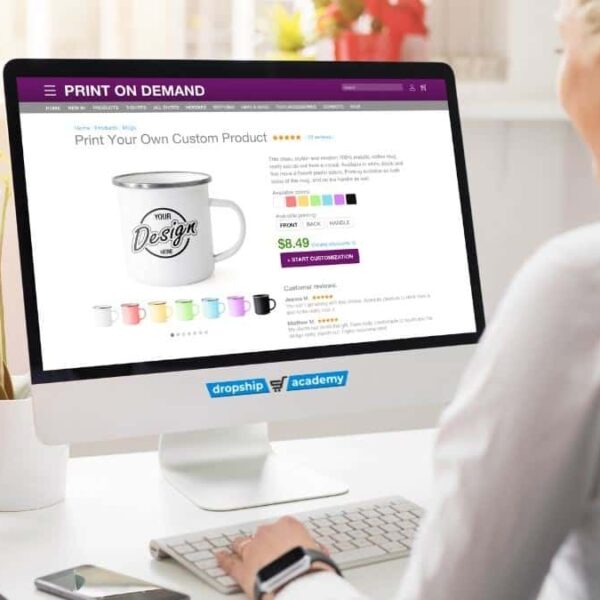
Looking to start a website designer career? It’s a great choice! As more businesses move online, there’s an increasing demand for skilled website designers career who can create engaging, user-friendly sites. But how do you get started in this exciting field? In this blog, we will discuss in detail how to start a career as a website designer.
How to understand the basics of a website designer career?
A website design career might seem complicated, but it’s a combination of a few basic elements that work together to create a great user experience. Understanding these elements is essential if you want to start a career as a website designer.
The first element is the layout. A good layout creates an intuitive flow that guides the user through the site. This includes things like navigation, headings, and the placement of content.
The second element is color. Color sets the mood of the site and helps create a cohesive brand identity. It’s vital to choose colors that complement each other and are easy on the eyes.
The third element is typography. This includes things like font size, typeface, and spacing. The right typography can make the content easy to read and help guide the user’s attention.
Finally, there’s functionality. This includes things like forms, buttons, and interactive elements. These help the user navigate the site and accomplish their goals.
You must also understand HTML, CSS, and JavaScript to create great websites. These are the building blocks of website design, and they help you bring your ideas to life.
With a little practice, anyone can understand the basics of website design. It’s crucial to start by mastering these fundamental concepts if you’re interested in pursuing a career in this area.
How to Build a Portfolio?
Building a portfolio is one of the most important career steps for a website designer. Your portfolio is a collection of your best work, which potential clients will use to evaluate your skills and experience.
So, how do you create a standout portfolio? The first step is to include a variety of real client projects. This gives clients a sense of the work you can do and shows that you have experience working with real-world clients. If you want to build a professional portfolio it is advised that hire the services of a London website agency.
Another important aspect of a good portfolio is creativity. Make sure to include projects that show off your unique design style and approach. This will help you be unique from other designers and attract clients who appreciate your style.
As you build your portfolio, don’t be afraid to showcase your skills in other areas, such as copywriting or digital marketing. The more skills you can offer, the more valuable you’ll be to potential clients.
Finally, make sure your portfolio is easy to navigate and visually appealing. Use clear headings and descriptions to help potential clients understand the scope of each project, and make sure the portfolio’s design is clean and professional.
How to Find clients?
Finding clients is crucial if you want to advance in your profession as a website designer and earn a livelihood doing what you enjoy. But where do you start looking for those initial few customers?
Networking is one of the finest strategies to locate customers. Inform both your personal and professional contacts that you are looking for work.
You never know who could know someone who wants a website developed for a buddy or a coworker. Utilizing internet employment boards or marketplaces is an additional choice. Numerous networks link independent contractors with businesses that require website design services.
These might be an excellent way to begin and expand your portfolio.
You can also create your own website and use it as a marketing tool. Make sure to showcase your skills and experience, and make it clear that you’re available for freelance work. Social media can be used to advertise your services and build relationships with potential customers.
As you gain more experience, word-of-mouth referrals will become a valuable source of new business. Make sure to provide great service to your existing clients and always be professional and reliable. This will help you build a strong reputation and attract even more clients in the future.
Finding clients can be challenging, but with the right strategies and a little persistence, you can build a successful career as a website designer. You can build a beautiful and useful website with the help of a web design company, and this will help your company expand and succeed.
How to Grow A website designer Career?
Once you’ve started you’re website designer career, it’s essential to continue growing and developing your skills. Here are some tips for taking your job to the next level:
Keep up-to-date on the most recent design trends and technologies. . The world of website design is constantly evolving, and it’s important to stay on top of the latest developments.
Learn new skills and expand your expertise. Whether it’s learning a new programming language or taking a course in UX design, investing in your own education and skills will pay off in the long run.
Build relationships with other designers and industry professionals. Attend events, join online groups, and participate in design communities to network and learn from others.
Focus on providing excellent customer service. Building strong relationships with your clients will help you retain their business and earn positive referrals.
Consider specializing in a specific niche or industry. Focusing on a specific area of expertise can help you distinctive from other designers and attract more clients in your chosen niche.
Conclusion:
A website designer career can be an exciting and rewarding journey. By understanding the basics of website design, building a standout portfolio, and finding clients through networking and marketing, you can set yourself up for success.
But it doesn’t end there. Growing your career as a website designer requires continuous learning, staying on top of the latest trends, and expanding your skill set. By investing in your own education and building strong relationships with clients and industry professionals, you can take your career to new heights.











